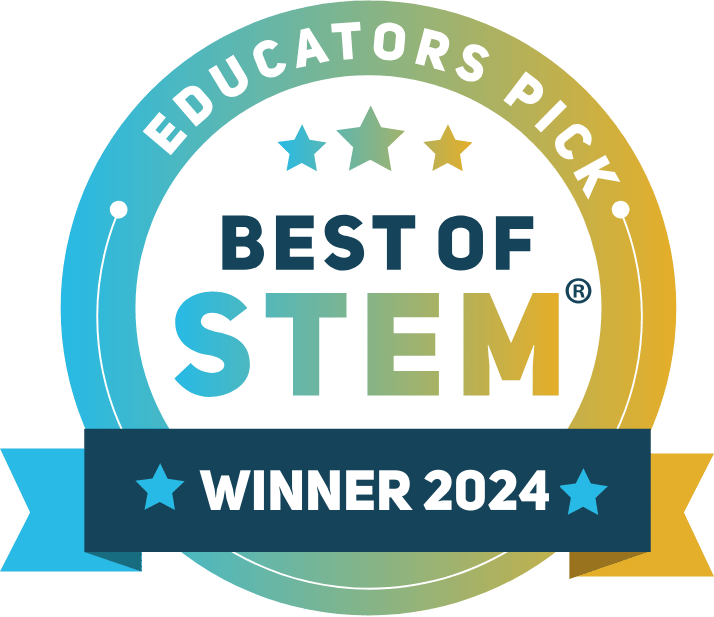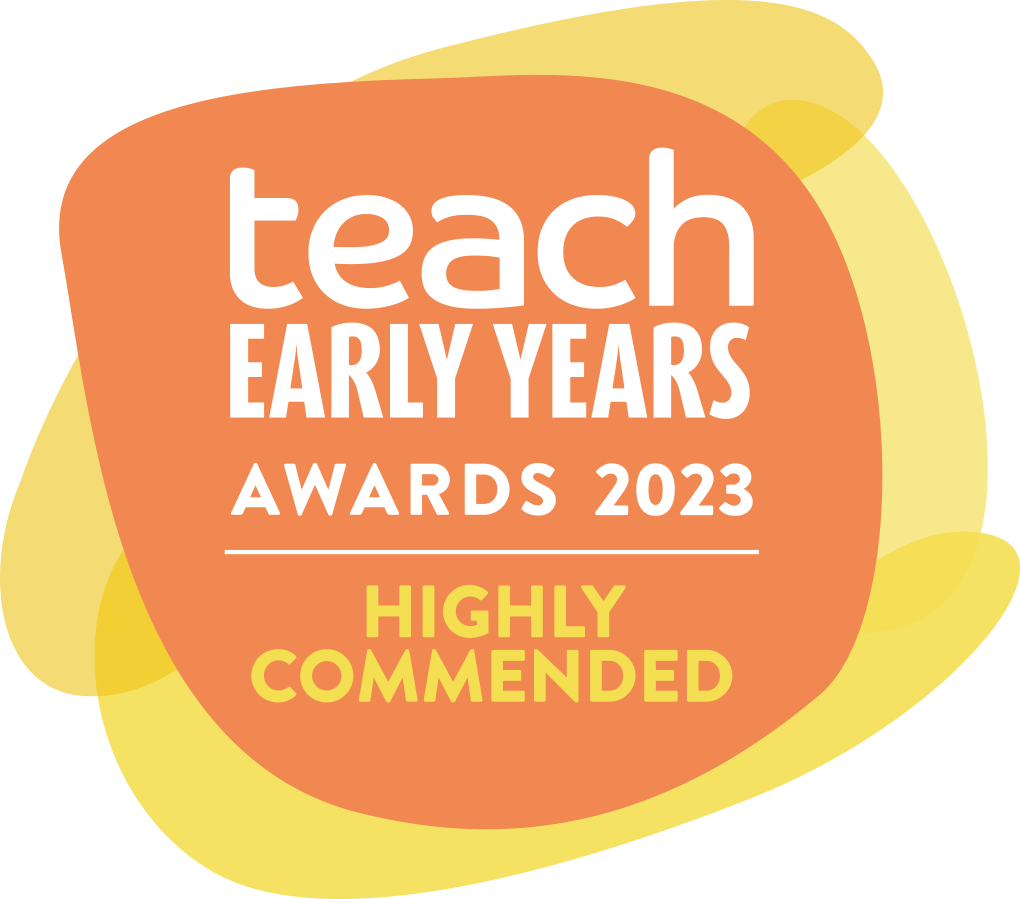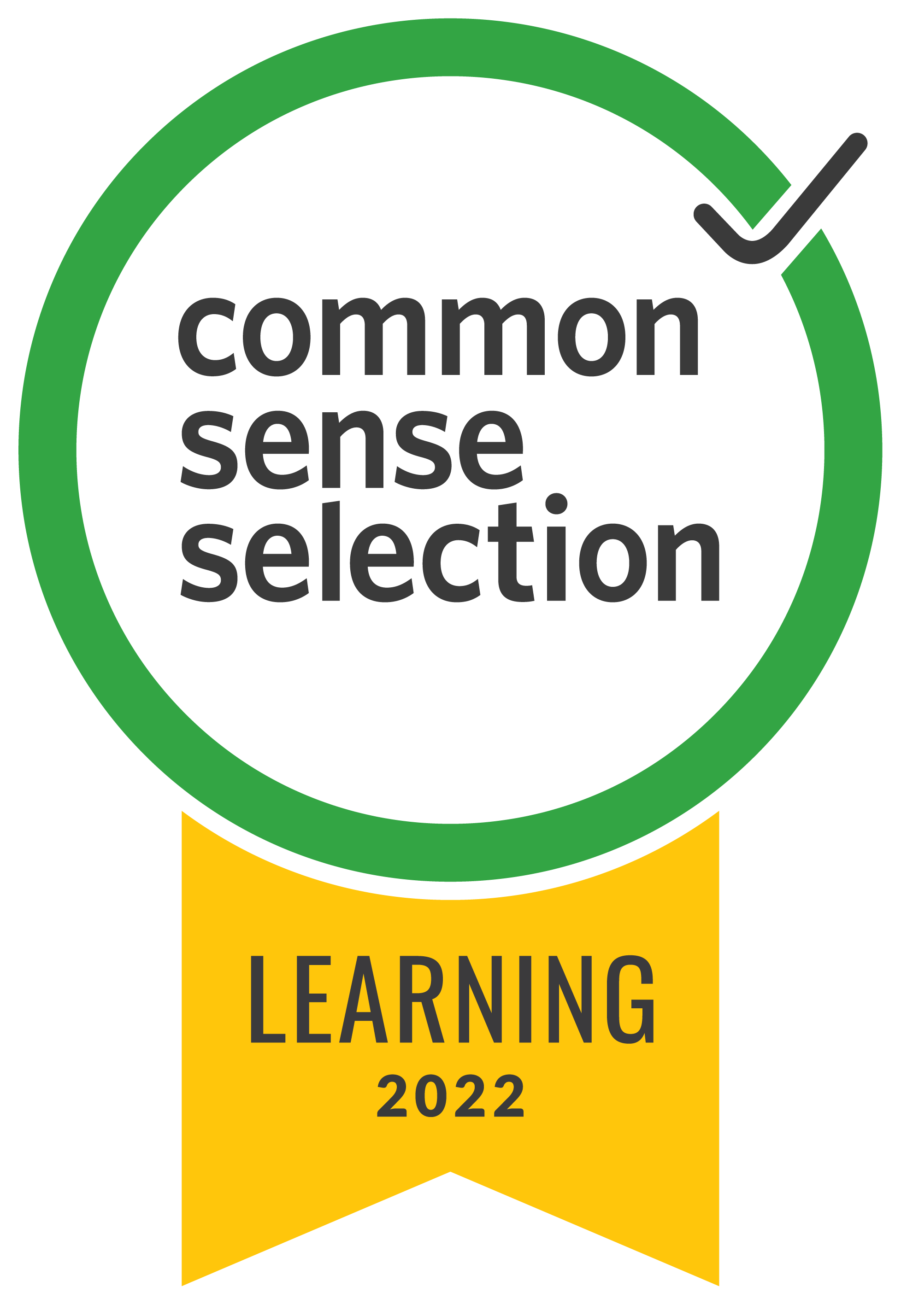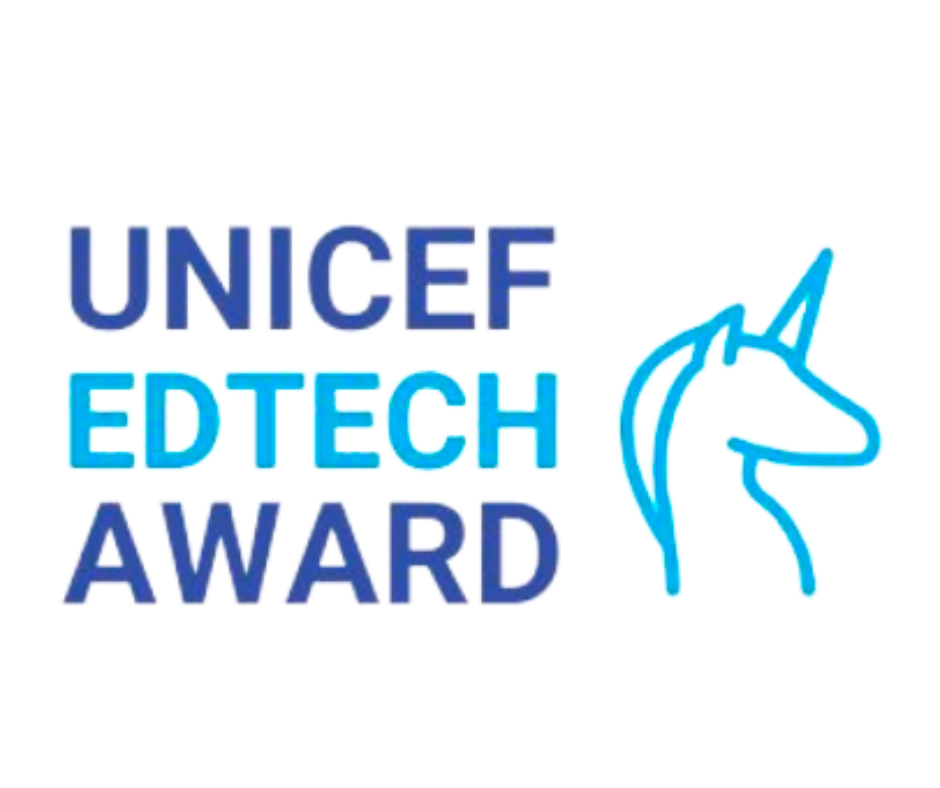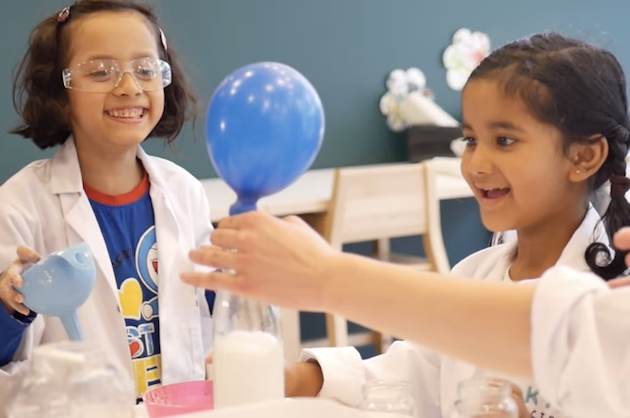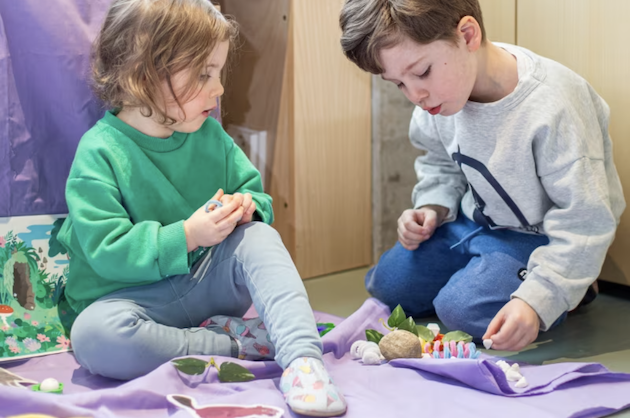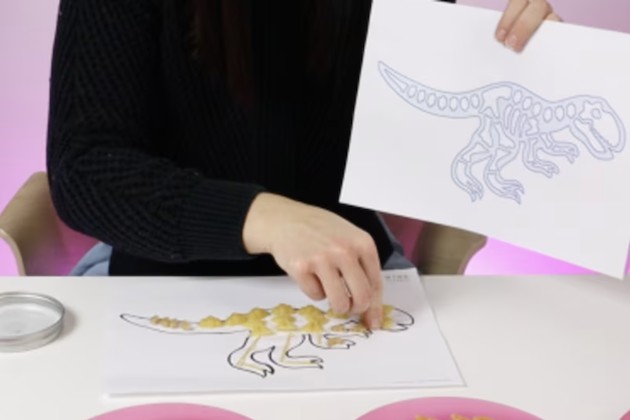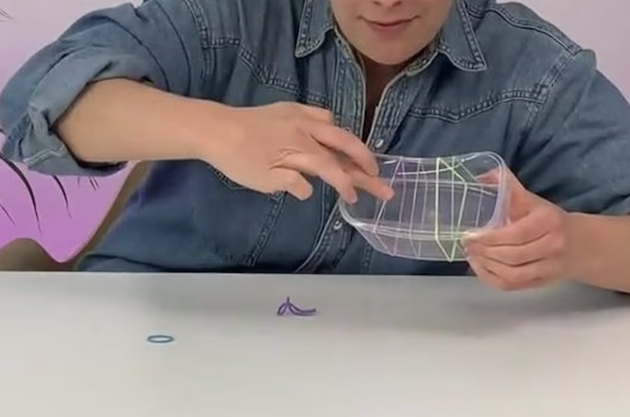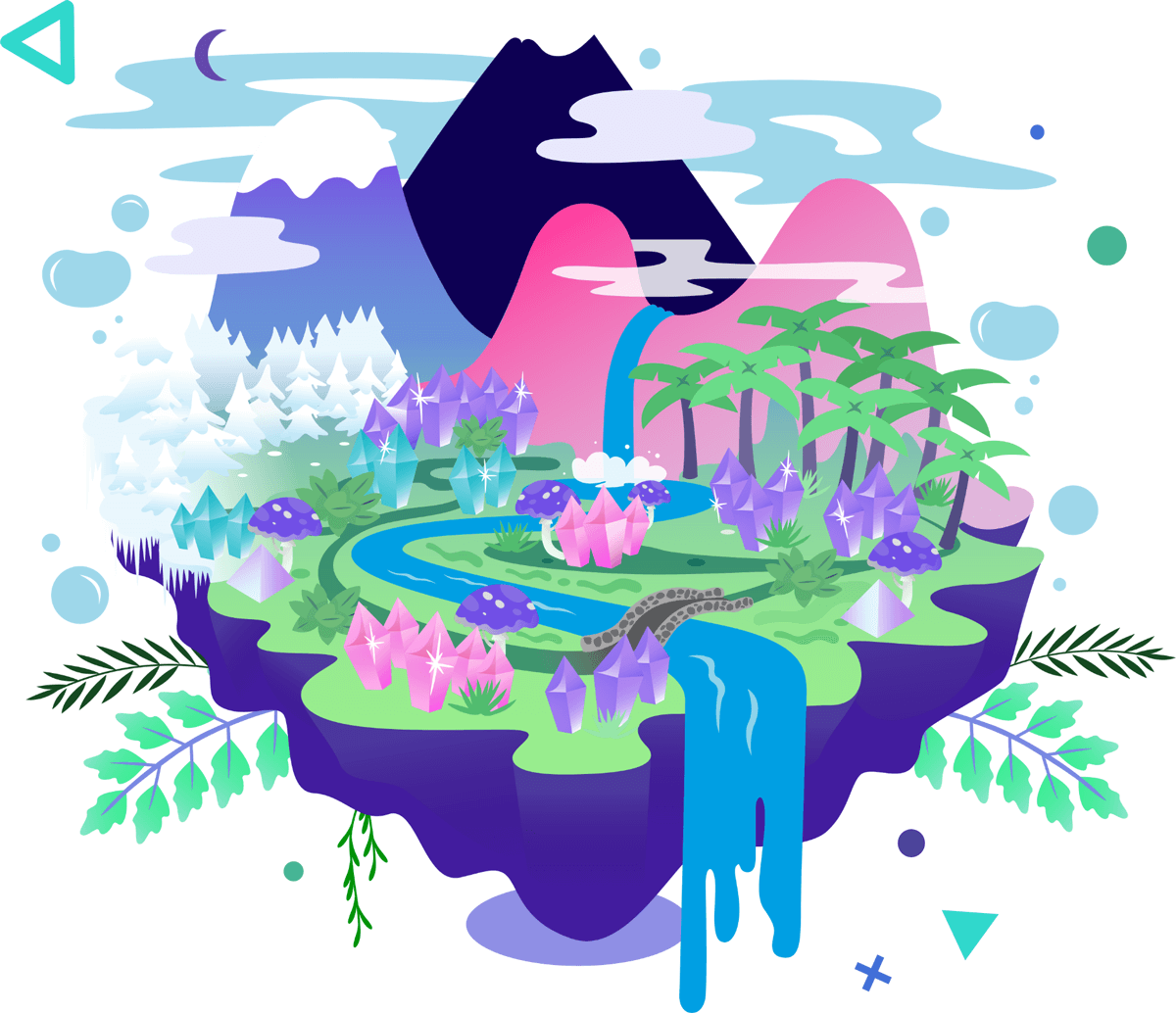Transform Curiosity into Hands-On STEM Discovery
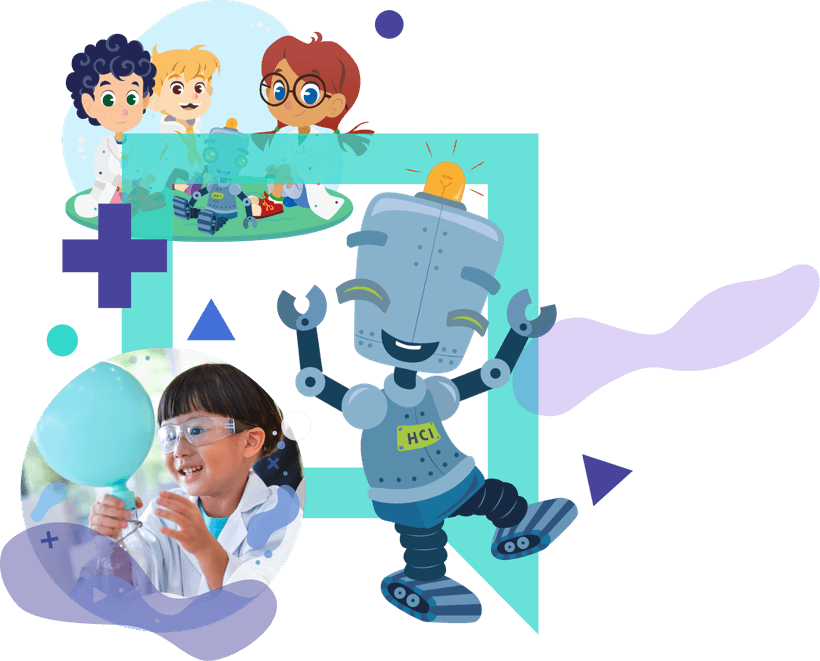
Transform science learning into imaginative inquiry play that captivates young minds. With Kide, you’ll embrace children’s natural curiosity through hands-on experiences and engaging stories, bringing abstract science concepts to life. Our program gives you the confidence and tools to deliver inquiry-based lessons that inspire and meet the needs of young learners.

Inspiring Early STEM Learning Worldwide
32
Countries with Kide
Science customers
30k
Registered
educators
1M
Children reached
through Kide
The Research Behind
Kide Science’s Playful Inquiry Approach
Kide Science’s teaching model is grounded in proven academic research. Explore the powerful theoretical principles that shape our innovative play- and inquiry-based approach!
INSIDE OUR EARLY CHILDHOOD STEM PROGRAM
Kide Science Features and Benefits
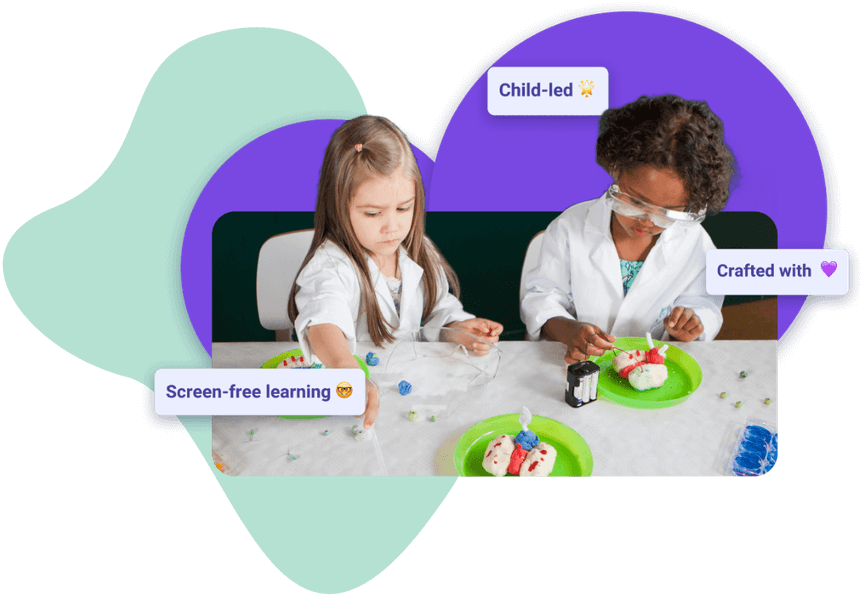
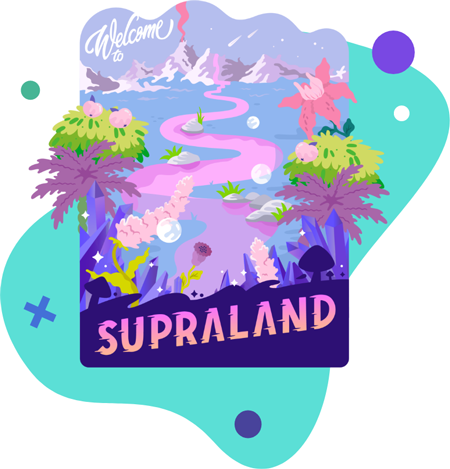
Story-based, Playful Inquiry Lessons
Kide lessons always start with a story to introduce scientific concepts. One of our characters from the magical world of Supraland experiences a tricky problem that they really need your students’ help to solve! These stories help make abstract concepts more concrete and relatable for young learners.
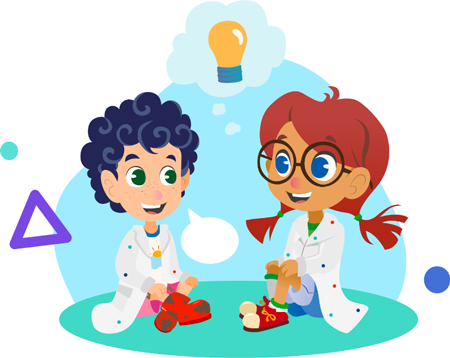
Screen-Free, Hands-On Exploration
Children learn best through hands-on experiences. With Kide, kids can explore, experiment, and make discoveries in a safe and supportive environment. Through imaginative play, they become little investigators, motivated to solve the challenges faced by loveable story characters.
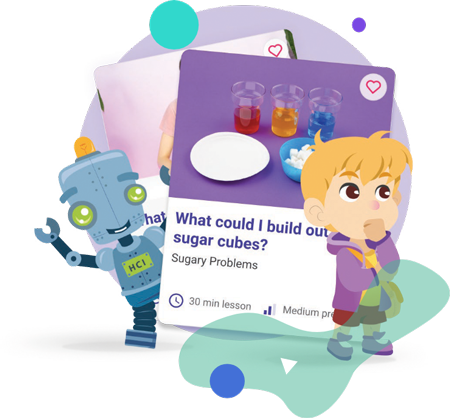
Develop Critical Skills Early On
Kide embraces the idea that children are active learners by nature. Our lessons and stories foster curiosity, problem-solving, and critical thinking skills in young children. Children learn about scientific concepts and develop essential skills such as observation, prediction, and problem-solving.
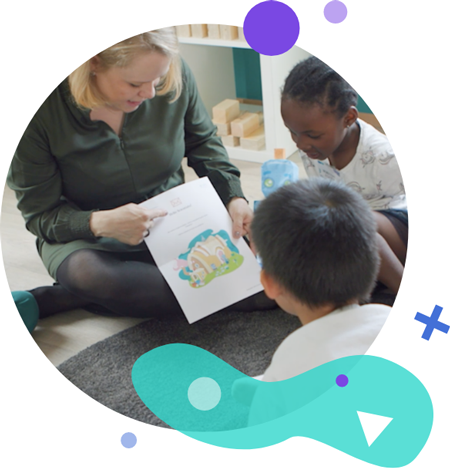
Printables and Assessments
From flashcards to coloring sheets to posters and assessment materials, our printables are designed to support your students’ immersion in the magical story world of Supraland.
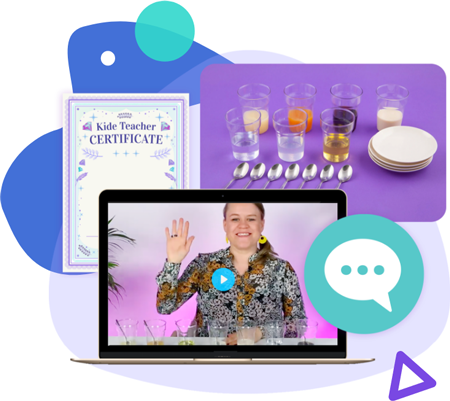
Teacher Support and Professional Development
Learn on the job—no need to find extra time for upskilling! With Kide, our self-paced training fits even the busiest schedules through quick 5-minute videos, ready-made practice lessons, and self-assessments. You can easily match Kide’s training modules to your curriculum, making professional growth effortless and effective.
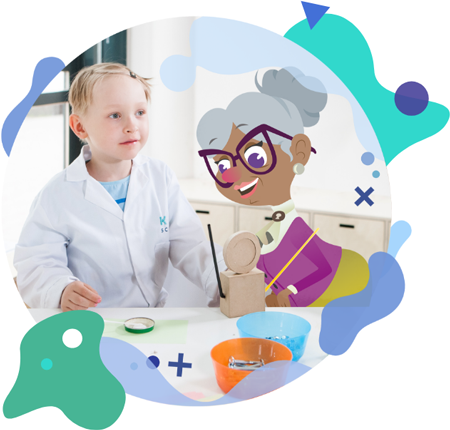
Parent Involvement
Parents are crucial to their child’s learning journey. Our program encourages parental involvement through take-home activities and resources, fostering a collaborative learning environment.
STANDARDS CORRELATIONS
Supporting Your Early Childhood Standards
There’s no need to replace your curriculum—with Kide, you’ll add essential, child-friendly elements that bring an extra sparkle to your teaching.
Young children learn best when they can test their ideas in meaningful contexts. That’s why Kide introduces vital inquiry skills through exciting, active lessons that connect multiple areas of your curriculum, including literacy, math, and approaches to learning.
Not seeing what you need? We’re always updating our resources – contact us at info@kidescience.com.
Ready-to-Go STEM Lesson Plans
that Ignite a Child’s Sense of Wonder
Click each tile to view the sample lesson.
Find A Solution For Your Needs
Start today with no hassle! Kide utilizes easily obtainable supplies already available in your classroom. With our environmentally friendly approach, there is no need to purchase additional kits.
Kide Free
- One free lesson plan every week for 30 days (access to each lesson resets 7 days after unlocking)
- On-screen, digital lesson plans only
- Lesson instructions: Step-by-step guide, video guidance for teachers, educational tips, scientific explanations, and age/ability adjustment tips
- Access to some of the basic printables needed to do the lessons
Kide Classroom
- Unlimited access to all content
- On-screen, digital AND printable lesson plans
- Lesson instructions: Step-by-step guide, video guidance for teachers, educational tips, scientific explanations, and age/ability adjustment tips
- Access to ALL printables
- Assessment materials for the classroom
- Complementary video training for teachers
- Teacher certifications
- Additional home experiments for parents
- Personalized onboarding training for new users
PROVEN RESULTS
See How Customers are Harnessing the Power of Play to Ignite Early Learning
Forsyth County Builds a Strong Science Foundation and Achieves Scores 25 Points Above the State Average
The Challenges
- New early literacy legislation
- Time constraints teaching science in kindergarten
- The pandemic’s effects on school readiness skills
The Solution
With Kide Science teachers were able to see how easily its lesson plans could integrate into their day-to-day, and also appreciated how they support cross-curricular domains.
“What’s nice about Kide Science is that it doesn’t take away from our literacy instruction; it enhances it. It integrates with the practices teachers are already implementing — like read-alouds and shared reading — and it supports our standards. That thematic integration is so powerful. The more connections we can provide, the deeper students’ learning will be.” – Lee Anne Rice, Associate Superintendent of Teaching and Learning
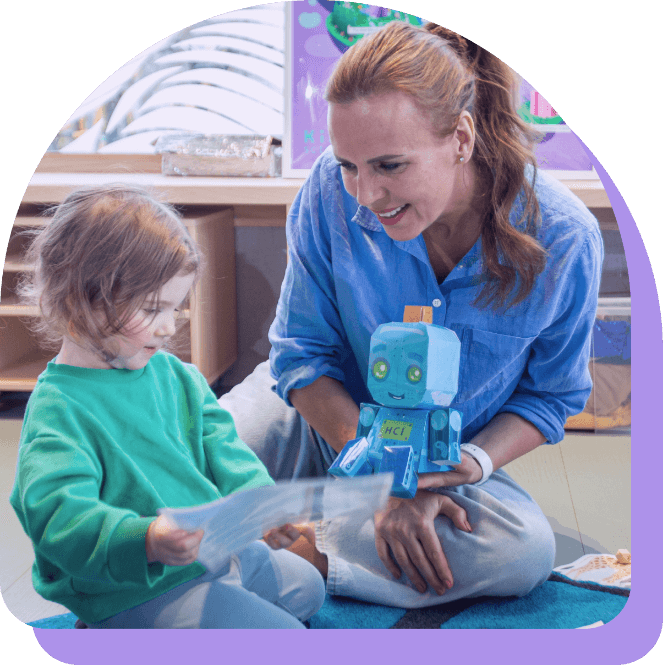
2024 Kide Science Impact Evidence
According to user survey results, 94% of respondents either agreed or strongly agreed that Kide Science made teaching STEAM to young children easier. Both teachers and children found the lessons enjoyable, and over 50% of teachers believed that Kide Science also catered well to children with special needs.
Teachers cited that they appreciated the creative lessons and that children started to ask more scientific questions after starting Kide. Furthermore, they highlighted that Kide contributed to their professional development and expressed enjoyment in delivering STEAM education.
One teacher described a shift in her perception of science: “I used to struggle with science. However, upon encountering Kide Science, I realized it wasn’t as challenging as I had initially thought.”

Frequently Asked Questions
- How can a lesson be appropriate for ages 3-8? That’s a really big age gap.
You’re right! We don’t expect you to teach the exact same lesson to every age group. Each experiment comes with adaptation tips to tailor the lesson to your respective age and skill levels.
These tips include ways to ease the task for the youngest scientists (beginner level) or provide a challenge for the more experienced ones (advanced level). Some learners could, for example, begin to measure the length of flowers using their fingers, whereas the more experienced ones could use a ruler for the same task and mark down results.
- Which Learning Standards do we match?
We fully correlate to the majority of Science State Standards (US). In addition, we support many other areas of learning, such as literacy, math, movement, and relationship skills. We have many alignment documents to show this; you can find those here.
Therefore, we make the perfect supplemental curriculum: focused on developing early years children’s playful inquiry skills. This means that we enhance ANY EXISTING core curriculum or standards.
- I already use a core curriculum. What more does Kide Science bring?
Kide Science provides a library of hands-on activities, giving teachers the flexibility to strengthen their preexisting curriculum with added content. We provide that extra boost of engagement through stories and imaginative play a more developmentally appropriate way to hook young learners in from the get-go.
Our secret is using stories and playful methods so that children feel that they’re playing whilst they’re actually developing important science process skills. Also, we don’t take away from the time for literacy and math – those are integrated into our approach.
- How is Kide Science different from other STEM resources I already use?
Kide Science is play-based. Each lesson is built around a story, generating lots of engagement from young children. This is something that many other STEM programs lack: they don’t always bring the learning to a child’s level.
Scientific research shows that children learn better when playing and using their natural sense of wonder. That’s why every Kide Science lesson starts with a story from an imaginary world! Stories and illustrations engage children and present research problems in a concrete, fun way – much more effective than science lessons with no context.
- How does Kide Science improve children’s learning?
Kide improves children’s curiosity and inquiry skills. It also builds their self-efficacy as they begin to trust themselves as capable learners. These skills greatly advance lifelong learning in all subjects, not just science.
Kide benefits the learning of all children, despite their learning abilities and backgrounds. Even children who struggle with concentration are much more engaged in Kide lessons.Kide also improves children’s learning by empowering teachers. We equip them with the right tools and methods to teach STEM to young children in an engaging and, most of all FUN way!
- How do you assess with Kide?
Kide is created with early years children in mind – and that goes for assessment too.
Especially at this young age, the most appropriate way to assess is by documenting and celebrating the learning process together. We provide teachers with practical and child-friendly ways to do this: we don’t have tests or online reporting systems, but we do have toolkits and writing templates to help gather and visualize children’s ideas and successes. This formative style best supports young children’s learning.
- What topics do you cover?
We truly are cross-curricular. Our main topics are Science, Technology, Engineering, Art, and Math (AKA… STEAM!), and we often thread all of these into the same lesson.
Kide also provides the perfect context for developing ELA skills. Our fictional, playful lessons encourage skills such as listening comprehension and print concepts. And children are supported to communicate their ideas in a variety of exciting ways: Kide learning is multimodal literacy at it’s finest!
And if you’re still wanting more, our lessons also provide an opportunity to practice many other areas of learning, such as geography, health, and physical skills.
Ultimately, our goal is to give children the social-emotional, critical thinking and problem-solving skills needed to navigate the world as they grow.
- Do I need a science kit or special supplies?
Not at all! We’ve thoughtfully designed every lesson to use common kitchen supplies only. And hey – if you don’t have something: we also often list alternatives. If you have these supplies, you can do 80 % of all of our activities.
- How much does Kide cost?
You can try out the curriculum for free, after which we provide separate plans for classroom and school.
Ask for more details for pricing by contacting us.
- Is the Kide Science platform for kids, or is it for adults?
We are proud to say that we are screen-free for children. Our platform provides teachers with hundreds of online and printable lesson plans, along with professional development opportunities.
Teachers use our platform to prepare before the lesson takes place together with the children. With Kide, the learning is hands-on, interactive and personal: the most appropriate pedagogy for young children.
- Does this take a lot of preparation?
No, it really doesn’t. In fact – our starter lessons can be done right away with very basic supplies you already have on hand (like pens). On average, it takes about 15-20 minutes to prepare. This includes familiarizing yourself with the lesson, collecting supplies, and printing out any materials. Then you’re ready to go!
Powerful Alone, Even Better Together
Although our STEM programs are powerful on their own, the real magic happens when you use them together. We are truly a one stop STEM solution suite.
